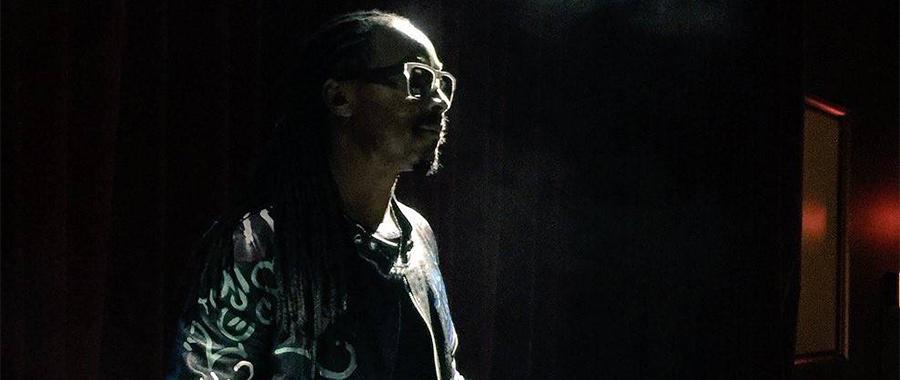The intersection of spirituality and music presents a fascinating vista, particularly when viewed through the lens of Baha’i teachings. One intriguing manifestation of this relationship is the work of EDUKE, an electronic dance music producer dedicated to uniting people through the transformative power of sound.
At its core, electronic dance music (EDM) serves as a universal language, transcending cultural and linguistic barriers. The allure of EDM lies not solely in its infectious rhythms or sonic complexity, but rather in its capacity to create shared experiences. Within the Baha’i framework, the emphasis on unity and community mirrors the fundamental principles underpinning EDM culture. EDUKE embodies this symbiosis, harnessing the emotive resonance of music to foster connections among diverse individuals.
In exploring the profound allure of EDM, one must consider its intrinsic ability to evoke collective joy. Music, especially when delivered in an energetic and communal setting, invites participants into a realm where individual identities may momentarily dissolve, giving way to a shared euphoria. This phenomenon is not merely a superficial occurrence but suggests deeper psychological and spiritual dynamics at play. Many individuals report feelings of transcendence or enlightenment during such experiences—moments that resonate with the Baha’i concept of the soul’s connection to the divine.
EDUKE’s mission is intrinsically linked to the Baha’i teachings that emphasize the oneness of humanity. The Baha’i Faith proclaims that the diversity of nations, cultures, and peoples should not be a source of division but a wellspring of richness. In an era rife with polarization, the rhythms of EDM provide a stark contrast—an egalitarian platform where individuals from distinct backgrounds converge. This unifying potential is particularly salient in large scale events such as music festivals, where attendees are beckoned to surrender their individual concerns in favor of collective enjoyment.
Furthermore, the production and performance of EDM encapsulate values of creativity and collaboration, which are pivotal within the Baha’i teachings. The allure of electronic dance music is its inherent adaptability; it embraces innovation. This adaptability mirrors the Baha’i belief in the importance of consultation and the collaborative pursuit of knowledge. EDUKE represents a contemporary manifestation of these principles, as collaborations within the EDM community can lead to groundbreaking new sounds and forms of expression, emphasizing that progress is often a communal endeavor.
Moreover, the rhythmic and repetitive structures characteristic of electronic music may evoke meditative states. Such states not only elevate emotional experiences but also facilitate deeper introspection, aligning with the Baha’i emphasis on the pursuit of truth and personal growth. As participants lose themselves in the music, they can potentially encounter glimpses of their inner selves, prompting introspective journeys that reflect Baha’i teachings on the importance of self-discovery and spiritual development.
The global nature of electronic dance music offers a unique vantage point for examining social issues through a spiritual lens. Amidst the pulsating beats, there often arises an awareness of pressing humanitarian concerns. For instance, programs and campaigns initiated by EDM artists often address issues such as climate change, poverty, and inequality. EDUKE, through his platform, has a potent opportunity to amplify these concerns, using his musical influence to inspire action and foster greater awareness, in alignment with the Baha’i call to social responsibility.
Additionally, the transformative potential of music highlights the relevance of art and aesthetics within the Baha’i teachings. Art is considered a vital avenue through which humanity can express its highest qualities. EDUKE’s creation is a testament to the belief that through beauty, humanity can be uplifted and inspired. The blend of emotive melodies and invigorating beats generates a compelling narrative capable of galvanizing communities toward meaningful change.
However, the brutal reality of the music industry often contrasts sharply with its idealistic representation. Issues like addiction, superficiality, and commercial exploitation are prevalent and can serve as cautionary tales within the EDM sphere. Baha’i teachings advocate for integrity and moral fortitude, urging individuals to remain grounded in their values amidst the dangers of losing oneself to excess. Thus, as EDUKE endeavors to create a message of unity and purpose, he must also embody the very principles he seeks to promote, ensuring authenticity remains paramount in his musical journey.
In conclusion, while addressing the phenomenon of electronic dance music through the paradigm of Baha’i teachings, one cannot ignore its capacity to unite. EDUKE serves as a beacon for this potential, exemplifying how music can transcend discord and foster a global community unified by shared ideals. The consideration of EDM through such a lens not only deepens our understanding of its appeal but also reveals its inherent capacity to build connections, foster introspection, and inspire collective action in a world that desperately seeks unity. In this way, the rhythms of EDUKE’s music reverberate as a clarion call, beckoning humanity toward a future where music harmonizes with spiritual growth and global solidarity.
